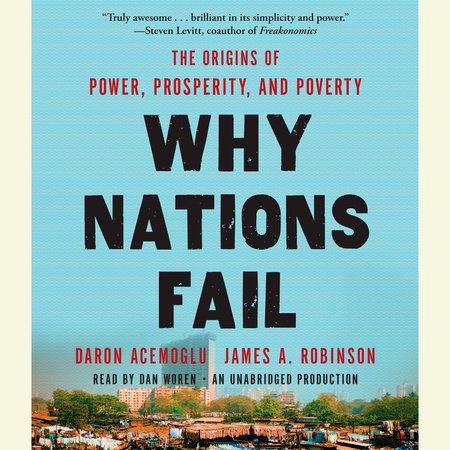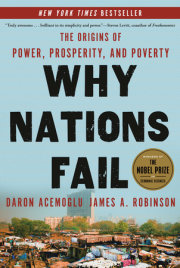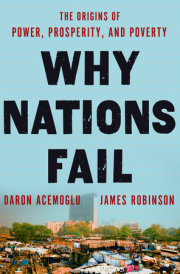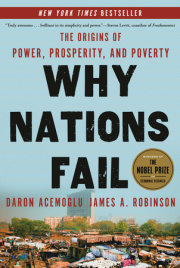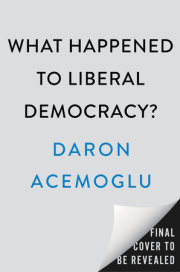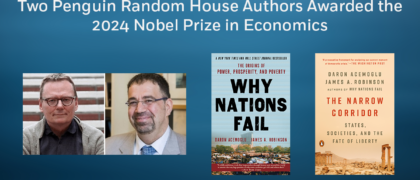PrefaceThis book is about the huge differences in incomes and standards of living that separate the rich countries of the world, such as the United States, Great Britain, and Germany, from the poor, such as those in sub-Saharan Africa, Central America, and South Asia.
As we write this preface, North Africa and the Middle East have been shaken by the “Arab Spring” started by the so-called Jasmine Revolution, which was initially ignited by public outrage over the selfimmolation of a street vendor, Mohamed Bouazizi, on December 17, 2010. By January 14, 2011, President Zine El Abidine Ben Ali, who had ruled Tunisia since 1987, had stepped down, but far from abating, the revolutionary fervor against the rule of privileged elites in Tunisia was getting stronger and had already spread to the rest of the Middle East. Hosni Mubarak, who had ruled Egypt with a tight grip for almost thirty years, was ousted on February 11, 2011. The fates of the regimes in Bahrain, Libya, Syria, and Yemen are unknown as we complete this preface.
The roots of discontent in these countries lie in their poverty. The average Egyptian has an income level of around 12 percent of the average citizen of the United States and can expect to live ten fewer years; 20 percent of the population is in dire poverty. Though these differences are significant, they are actually quite small compared with those between the United States and the poorest countries in the world, such as North Korea, Sierra Leone, and Zimbabwe, where well over half the population lives in poverty.
Why is Egypt so much poorer than the United States? What are the constraints that keep Egyptians from becoming more prosperous? Is the poverty of Egypt immutable, or can it be eradicated? A natural way to start thinking about this is to look at what the Egyptians themselves are saying about the problems they face and why they rose up against the Mubarak regime. Noha Hamed, twenty-four, a worker at an advertising agency in Cairo, made her views clear as she demonstrated in Tahrir Square: “We are suffering from corruption, oppression and bad education. We are living amid a corrupt system which has to change.” Another in the square, Mosaab El Shami, twenty, a pharmacy student, concurred: “I hope that by the end of this year we will have an elected government and that universal freedoms are applied and that we put an end to the corruption that has taken over this country.” The protestors in Tahrir Square spoke with one voice about the corruption of the government, its inability to deliver public services, and the lack of equality of opportunity in their country. They particularly complained about repression and the absence of political rights. As Mohamed ElBaradei, former director of the International Atomic Energy Agency, wrote on Twitter on January 13, 2011, “Tunisia: repression + absence of social justice + denial of channels for peaceful change = a ticking bomb.” Egyptians and Tunisians both saw their economic problems as being fundamentally caused by their lack of political rights. When the protestors started to formulate their demands more systematically, the fi rst twelve immediate demands posted by Wael Khalil, the software engineer and blogger who emerged as one of the leaders of the Egyptian protest movement, were all focused on political change. Issues such as raising the minimum wage appeared only among the transitional demands that were to be implemented later.
To Egyptians, the things that have held them back include an ineffective and corrupt state and a society where they cannot use their talent, ambition, ingenuity, and what education they can get. But they also recognize that the roots of these problems are political. All the economic impediments they face stem from the way political power in Egypt is exercised and monopolized by a narrow elite. This, they understand, is the fi rst thing that has to change.
Yet, in believing this, the protestors of Tahrir Square have sharply diverged from the conventional wisdom on this topic. When they reason about why a country such as Egypt is poor, most academics and commentators emphasize completely different factors. Some stress that Egypt’s poverty is determined primarily by its geography, by the fact that the country is mostly a desert and lacks adequate rainfall, and that its soils and climate do not allow productive agriculture. Others instead point to cultural attributes of Egyptians that are supposedly inimical to economic development and prosperity. Egyptians, they argue, lack the same sort of work ethic and cultural traits that have allowed others to prosper, and instead have accepted Islamic beliefs that are inconsistent with economic success. A third approach, the one dominant among economists and policy pundits, is based on the notion that the rulers of Egypt simply don’t know what is needed to make their country prosperous, and have followed incorrect policies and strategies in the past. If these rulers would only get the right advice from the right advisers, the thinking goes, prosperity would follow. To these academics and pundits, the fact that Egypt has been ruled by narrow elites feathering their nests at the expense of society seems irrelevant to understanding the country’s economic problems.
In this book we’ll argue that the Egyptians in Tahrir Square, not most academics and commentators, have the right idea. In fact, Egypt is poor precisely because it has been ruled by a narrow elite that have organized society for their own benefi t at the expense of the vast mass of people. Political power has been narrowly concentrated, and has been used to create great wealth for those who possess it, such as the $70 billion fortune apparently accumulated by ex-president Mubarak. The losers have been the Egyptian people, as they only too well understand.
We’ll show that this interpretation of Egyptian poverty, the people’s interpretation, turns out to provide a general explanation for why poor countries are poor. Whether it is North Korea, Sierra Leone, or Zimbabwe, we’ll show that poor countries are poor for the same reason that Egypt is poor. Countries such as Great Britain and the United States became rich because their citizens overthrew the elites who controlled power and created a society where political rights were much more broadly distributed, where the government was accountable and responsive to citizens, and where the great mass of people could take advantage of economic opportunities. We’ll show that to understand why there is such inequality in the world today we have to delve into the past and study the historical dynamics of societies. We’ll see that the reason that Britain is richer than Egypt is because in 1688, Britain (or England, to be exact) had a revolution that transformed the politics and thus the economics of the nation. People fought for and won more political rights, and they used them to expand their economic opportunities. The result was a fundamentally different political and economic trajectory, culminating in the Industrial Revolution.
The Industrial Revolution and the technologies it unleashed didn’t spread to Egypt, as that country was under the control of the Ottoman Empire, which treated Egypt in rather the same way as the Mubarak family later did. Ottoman rule in Egypt was overthrown by Napoleon Bonaparte in 1798, but the country then fell under the control of British colonialism, which had as little interest as the Ottomans in promoting Egypt’s prosperity. Though the Egyptians shook off the Ottoman and British empires and, in 1952, overthrew their monarchy, these were not revolutions like that of 1688 in England, and rather than fundamentally transforming politics in Egypt, they brought to power another elite as disinterested in achieving prosperity for ordinary Egyptians as the Ottoman and British had been. In consequence, the basic structure of society did not change, and Egypt stayed poor.
In this book we’ll study how these patterns reproduce themselves over time and why sometimes they are altered, as they were in England in 1688 and in France with the revolution of 1789. This will help us to understand if the situation in Egypt has changed today and whether the revolution that overthrew Mubarak will lead to a new set of institutions capable of bringing prosperity to ordinary Egyptians. Egypt has had revolutions in the past that did not change things, because those who mounted the revolutions simply took over the reins from those they’d deposed and recreated a similar system. It is indeed difficult for ordinary citizens to acquire real political power and change the way their society works. But it is possible, and we’ll see how this happened in England, France, and the United States, and also in Japan, Botswana, and Brazil. Fundamentally it is a political transformation of this sort that is required for a poor society to become rich. There is evidence that this may be happening in Egypt. Reda Metwaly, another protestor in Tahrir Square, argued, “Now you see Muslims and Christians together, now you see old and young together, all wanting the same thing.” We’ll see that such a broad movement in society was a key part of what happened in these other political transformations. If we understand when and why such transitions occur, we will be in a better position to evaluate when we expect such movements to fail as they have often done in the past and when we may hope that they will succeed and improve the lives of millions.
Copyright © 2012 by Daron Acemoglu and James A. Robinson. All rights reserved. No part of this excerpt may be reproduced or reprinted without permission in writing from the publisher.

